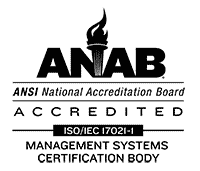Translations Help to Get Out the Vote

In the United States, where the population is a melting pot of cultures from all over the world, there is a great need for translation and interpretation services. Multilingual communications are necessary for keeping people informed about current events, particularly when something as big as a presidential election is occurring. Recognizing that one fifth of US residents speak a language other than English, the United States government has been working to develop ways to serve all citizens.
In recent years, the government has done much to improve language support services for elections. Prior to the 2008 election, The Election Assistance Commission (EAC) developed the Help America Vote Act, which provided language glossaries in Chinese, Japanese, Korean, Spanish, Tagalog and Vietnamese, as well as translations of the National Mail Voter Registration Form. The EAC also created a Voter’s Guide to Federal Elections in eleven languages – English, Cherokee, Chinese, Dakota, Japanese, Korean, Navajo, Spanish, Tagalog, Vietnamese and Yup’ik – to help non-English speakers navigate federal elections.
These language glossaries have been a great help to many citizens with limited English proficiency; however, the election process this year has shown that there are still some speed bumps for government agencies when it comes to proofreading voter materials. For example, over a period of two weeks there were three instances of a Spanish translation mistake where a portion of voter materials in Arizona’s most populous county stated the wrong date for the November election. In California, a Korean translation of the 2012 state voter’s guide said Proposition 30 would raise the sales tax by 25 cents instead of one quarter of a penny. Although these mistakes were seen only by a small number of voters, the consequences of such misinformation could be significant!
Election materials are just one example of the importance of accurate translations, whether for government or corporate communications. Using highly qualified language professionals is critical, as is a process for quality assurance. A Language Service Provider has the capacity to pull these elements together for the best result.



